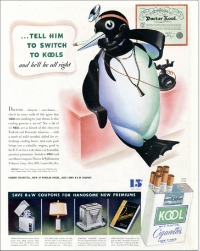Tag: FDA
-

/
7833 SEEN/
First Amendment claims seen as Rx for drug makers, headache for consumers
By Paul Raeburn
FairWarning
Off-label promotion has long been considered a serious white-collar crime. The FDA has fined drug companies billions of dollars for off-label violations. The aim: to prevent them from overstating the benefits and understating the risks of their products, a practice known as misbranding – and one that sometimes leads to patients getting drugs that prove harmful or even deadly. -

/
7925 SEEN/
Racial politics flavor debate over banning menthol cigarettes
By Myron Levin
FairWarning
Lorillard Tobacco donated nearly four times as much to Republican candidates as to Democrats in the 2014 congressional elections. No surprise there — most businesses count on Republicans to hold the line on regulations and taxes. But Lorillard made a striking exception for one set of Democrats: African Americans.
Support Florida Bulldog
If you believe in the value of watchdog journalism please make your tax-deductible contribution today.
We are a 501(c)(3) organization. All donations are tax deductible.

Join Our Email List
Florida Bulldog delivers fact-based watchdog reporting as a public service that’s essential to a free and democratic society. We are nonprofit, independent, nonpartisan, experienced. No fake news here.

